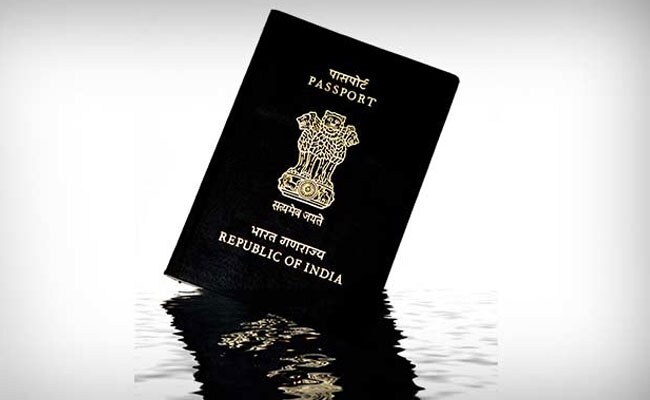
A Citizen cannot be denied a passport merely because he or she applied for asylum in a foreign country
New Delhi:
Authorities cannot deny passport to an Indian citizen merely because he or she has applied for asylum in a foreign country, the Delhi High Court has said.
The observation by a bench of justices S Ravindra Bhat and Sanjeev Sachdeva came on an appeal by the Centre against a single judge order quashing the government's decision to deny passports to three individuals who had sought asylum abroad.
While upholding the single judge's order, the bench also agreed with the decision to quash the authorities act of keeping applications of such applicants under prior approval category to deny passport to them.
According to the trio's pleas, they had applied for political asylum in foreign countries while they were overseas, but were denied passports for five years by different passport offices in the country on the ground that they "are likely to engage in activities prejudicial to the sovereignty and integrity of India".
These decisions were based on section 6(1)(a) of the Passports Act, 1967, which provides that where "the applicant may, or is likely to, engage in such country in activities prejudicial to the sovereignty and integrity of India" it is a valid ground for denying passport.
Recognising the importance of a citizen's fundamental right to travel overseas, the high court's division bench said, "sovereignty and integrity of the country are robust concepts that can withstand the actions of isolated individuals who may seek political asylum".
Advocate Abhik Kumar, who has represented Satnam Singh, submitted that there were no facts indicating that any of the applicants at any time indulged in behaviour that could lead to overt action.
He said that they were never "part of any conspiracy with groups that sought to undermine the sovereignty and integrity of India, which was relied upon by the government in denying them passports".
Agreeing with their contentions, the bench observed that "the act of seeking political asylum in a foreign land, ipso facto, cannot possibly be a ground to deny passport under the Act".
"It is clear that the provisions of the Act should be strictly construed as they have the consequence of depriving a person of his essential rights, and such deprivation should not be done lightly, but within the confines of the legislative provision," it noted in its 18-page verdict.
Central government standing counsel Rajesh Gogna had submitted that the very act of applying for political asylum meant that the applicant/writ petitioner vowed allegiance to the laws and Constitution of another country and disowned the laws and Constitution of his country of birth.
The observation by a bench of justices S Ravindra Bhat and Sanjeev Sachdeva came on an appeal by the Centre against a single judge order quashing the government's decision to deny passports to three individuals who had sought asylum abroad.
While upholding the single judge's order, the bench also agreed with the decision to quash the authorities act of keeping applications of such applicants under prior approval category to deny passport to them.
According to the trio's pleas, they had applied for political asylum in foreign countries while they were overseas, but were denied passports for five years by different passport offices in the country on the ground that they "are likely to engage in activities prejudicial to the sovereignty and integrity of India".
These decisions were based on section 6(1)(a) of the Passports Act, 1967, which provides that where "the applicant may, or is likely to, engage in such country in activities prejudicial to the sovereignty and integrity of India" it is a valid ground for denying passport.
Recognising the importance of a citizen's fundamental right to travel overseas, the high court's division bench said, "sovereignty and integrity of the country are robust concepts that can withstand the actions of isolated individuals who may seek political asylum".
Advocate Abhik Kumar, who has represented Satnam Singh, submitted that there were no facts indicating that any of the applicants at any time indulged in behaviour that could lead to overt action.
He said that they were never "part of any conspiracy with groups that sought to undermine the sovereignty and integrity of India, which was relied upon by the government in denying them passports".
Agreeing with their contentions, the bench observed that "the act of seeking political asylum in a foreign land, ipso facto, cannot possibly be a ground to deny passport under the Act".
"It is clear that the provisions of the Act should be strictly construed as they have the consequence of depriving a person of his essential rights, and such deprivation should not be done lightly, but within the confines of the legislative provision," it noted in its 18-page verdict.
Central government standing counsel Rajesh Gogna had submitted that the very act of applying for political asylum meant that the applicant/writ petitioner vowed allegiance to the laws and Constitution of another country and disowned the laws and Constitution of his country of birth.
Track Latest News Live on NDTV.com and get news updates from India and around the world

